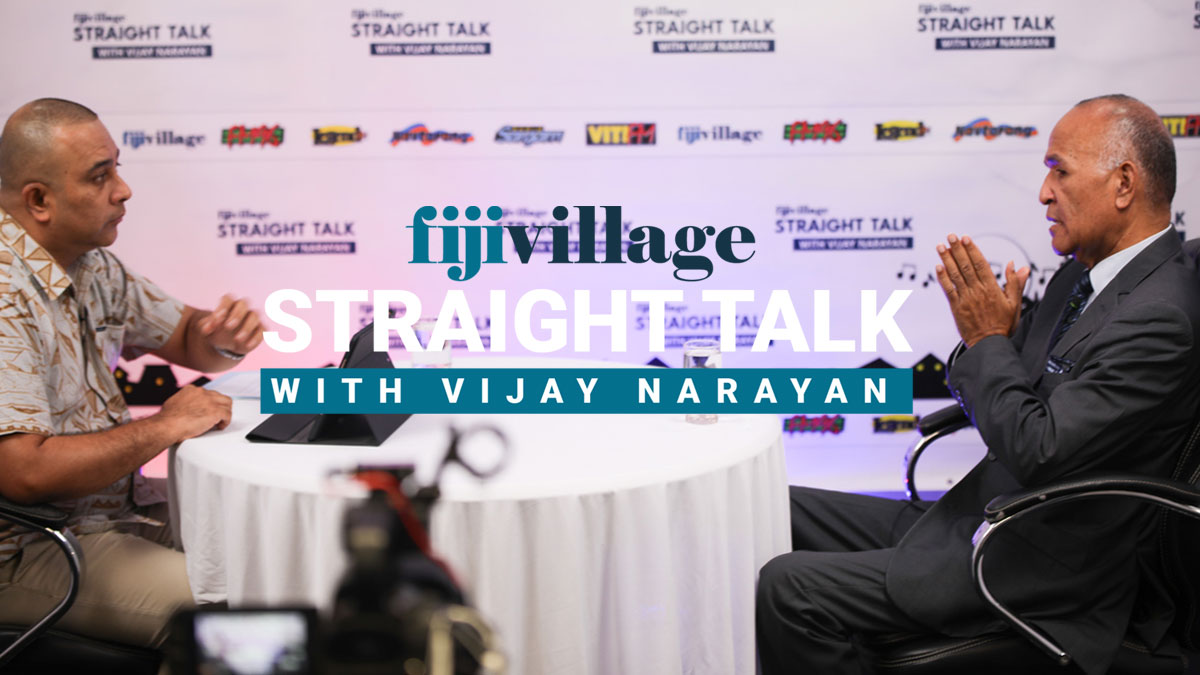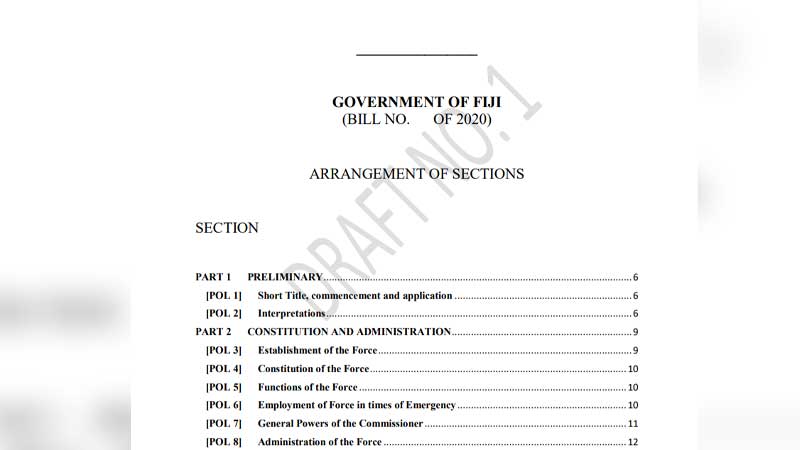
Prime Minister Voreqe Bainimarama has confirmed to fijivillage that the government has retracted consultations on the Draft Police Bill.
Minister for Defence, Inia Seruiratu has apologised for the mistake in bringing in the Draft Police Bill and overlooking the process to ensure it is vetted by the Solicitor General’s Office and cabinet.
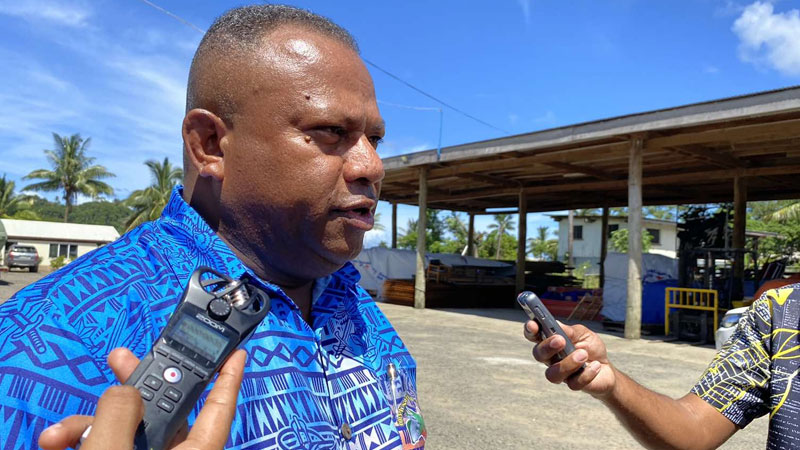
Minister for Defence, Inia Seruiratu has apologised for the mistake in bringing in the Draft Police Bill and overlooking the process to ensure it is vetted by the Solicitor General’s Office and cabinet.
Seruiratu says he will also not focus on the comments made by politicians like the National Federation Party President, Pio Tikoduadua as he does not want the work of the Police to politicise the issue.
Seruiratu has also instructed that the Defence Ministry conducts its own investigations on why the draft bill was not vetted by the Solicitor General’s Office, and he will have the report by Monday.
He says they were only supposed to get public submissions on what people want as the 1965 Police Act needs to be modernised.
Seruiratu says they need good, relevant and futuristic laws that can address our issues.
He says he has his own views but they will let the consultation process take place and see what the public wants in the Police Bill.
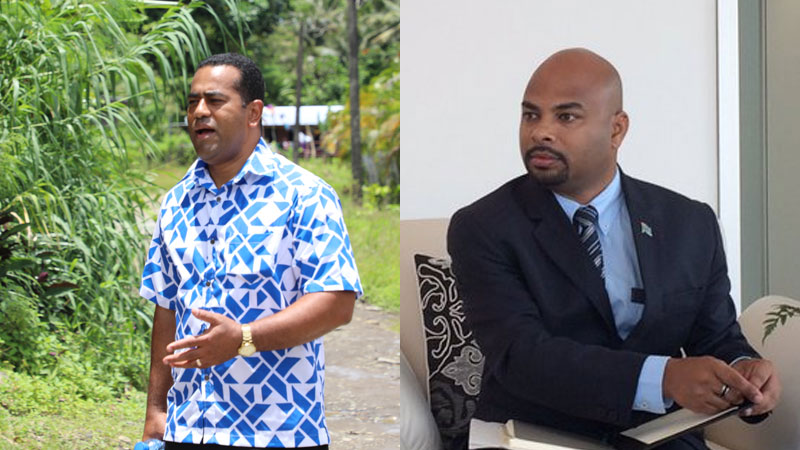
The Director of the Human Rights and Anti-Discrimination Commission Ashwin Raj says he does not need a lawyer-turned-politician to tell him what needs to be done.
SODELPA’s Deputy Leader, Filimoni Vosarogo had posted on his facebook page that the Draft Police Bill was out in the public and Raj could read it and form a view on it whether the powers violate the Bill of Rights.
In response to Vosarogo, Raj says Vosarogo should instead focus on building his crumbling political party.
Raj says the statement by Vosarogo is farcical and while this grandstanding does not warrant an elaborate response, it is imperative that the record is set straight.
The Director says he had issued a statement on 8th March 2021 which clearly stated that the Commission was going to make a submission on the proposed Police Bill once the bill is tabled in Parliament.
Raj adds it was categorically stated that the Commission in its substantive submission will call for alignment of the bill with the state’s human rights obligation under the domestic procedures and international conventions and treaties that Fiji has ratified.
He says the Commission had written to Parliament, seeking a date and time when it could make its submission but was advised that the Police Bill is yet to be tabled in the House.
Raj further says the Commission will, as it has done in the past, make its submission through the relevant parliamentary standing committee.
The Commission says it has made numerous submissions to the parliamentary standing committees since 2016 on Bills which have profound human rights implications, some of which includes: Rights of Persons with Disabilities Bill, Adoption Bill, Information Bill, Parliamentary Powers and Privileges Bill, Registration of Sex Offenders Bill, Online Safety Bill, International Covenants: International Covenant on Civil and Political Rights (ICCPR) and International Covenant on Economic Social and Cultural Rights (ICESCR), International Convention for the Protection of All Persons from Enforced Disappearance, ILO Convention 190 - The Elimination of Violence and Harassment in the World of Work, ILO Protocol of 2002 to the Occupational Safety and Health Convention, 1981, Optional Protocol to the Convention on the Rights of the Child on the Sale of Children, Child Prostitution and Child Pornography, Optional Protocol to the Convention on the Rights of the Child on the involvement of children in armed conflict and Cybercrime Bill 2020.
Raj also says beyond expressing opprobrium, a thorough submission to relevant parliamentary standing committee must deconstruct the law, examine which provisions of the proposed law interdicts rights and freedoms and what safeguards exist in our domestic procedures as well as international human rights law to resuscitate those rights under strain.
He stresses that this is the focus of the Human Rights and Anti-Discrimination Commission.
Raj adds we need to find solutions and he does not see the need to join the chorus of dissent.
He says there are enough people doing that in this country and that is their democratic right.
Raj further says as a national human rights institution, their focus will remain in finding solutions to these intractable human rights challenges and not grandstanding to appease the pathos of Vosarogo. He adds the Commission has called out police brutality openly and taken matters to court in relation to alleged violation of the rights of arrested and detained persons and freedom from cruel and degrading treatment.
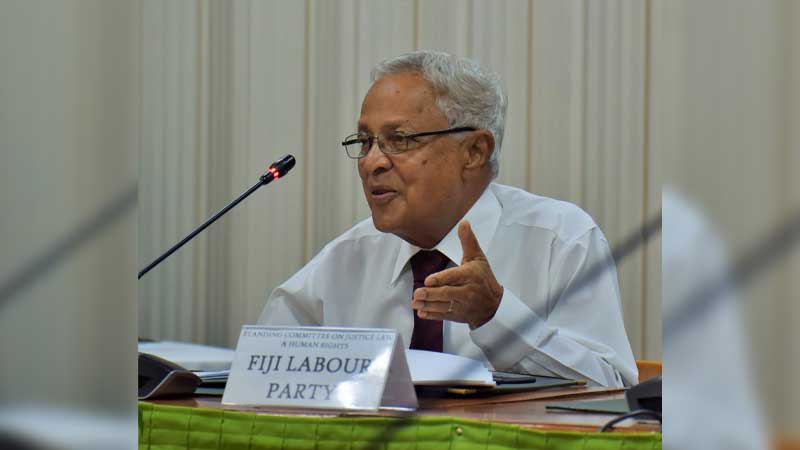
Fiji Labour Party Leader, Mahendra Chaudhry has welcomed the retraction of the Draft Police Bill following intervention by the Prime Minister.
Chaudhry says he is pleased that the draft bill has been retracted but he is rather dumbfounded by the fact that the Ministry of National Security and Defence had proceeded to the public consultation stage without obtaining official clearance.
He says the draft bill was strongly opposed by opposition political parties, civil society organisations and members of the public for the draconian measures proposed therein.
He calls on the government to similarly reconsider the objectionable provisions of the proposed bills to amend the Political Parties Act and Electoral Act currently before the Parliamentary Committee on Justice, Law and Human Rights.
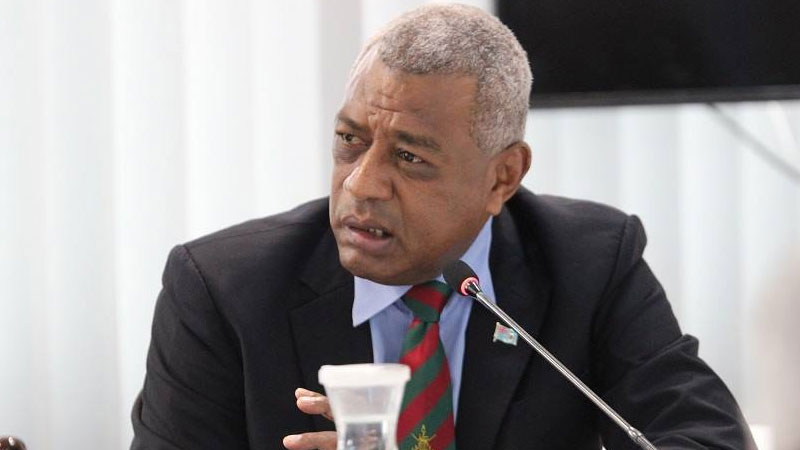
National Federation Party President, Pio Tikoduadua is asking why can’t the government stop blaming others for it’s mistakes and be honest with the people after the Prime Minister announced that the Draft Police Bill consultations is retracted.
The Prime Minister says the draft bill was not endorsed by cabinet and the Solicitor General, and some of the contents do not represent government policy.
However Tikoduadua said last week the Local Government Minister, Premila Kumar blamed an unnamed consultant for the release of the Draft Municipal Market Regulations imposing huge fees on market vendors.
The NFP President says now the Prime Minister is saying that the Draft Police Bill does not reflect the views of the government and will be withdrawn.
Tikoduadua says this is two weeks after Minister Inia Seruiratu was photographed at a launch of consultations on the draft bill.
The NFP President says every person and organisation make mistakes sometime, and this is also true of governments.
He says the NFP thanks the people of Fiji for the collapse of the draft bill. Tikoduadua says the power of the people has forced a bill not to go to Parliament.
Bainimarama has not made any further comments after Tikoduadua’s statement.
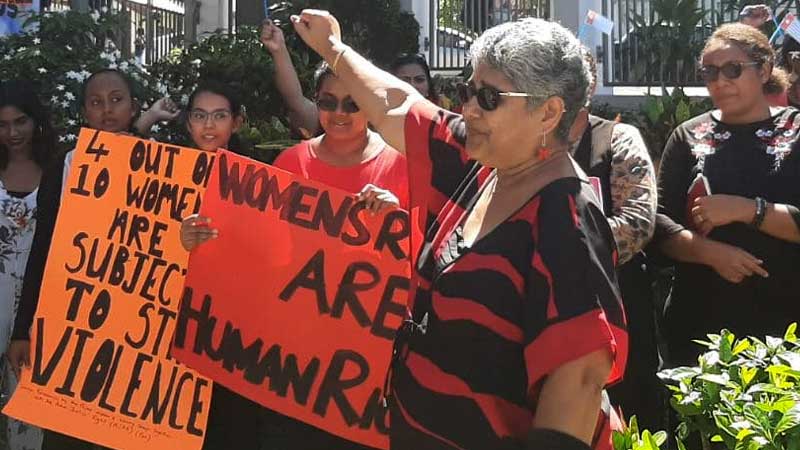
The Fiji Women’s Crisis Centre has welcomed the Prime Minister’s announcement that he has decided to retract the Draft Police Bill consultations and Coordinator Shamima Ali says they will continue to ensure that wider public consultations are held when reviewing the 1965 Police Act.
Ali says this shows people power.
Ali has also made a call for the current 1965 Police Act to be reviewed as it is long overdue.
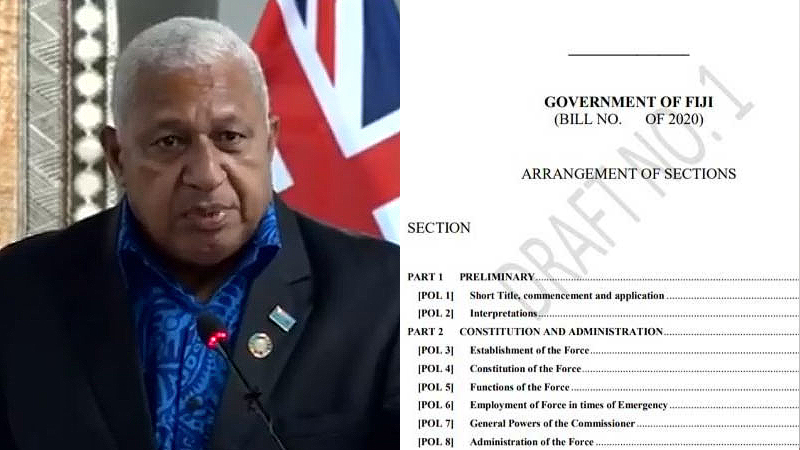
Prime Minister Voreqe Bainimarama has confirmed to fijivillage that the government has retracted consultations on the Draft Police Bill.
Bainimarama says the draft bill was not endorsed by the Solicitor General and cabinet.
He says what was endorsed was consultation on the old Police Act 1965, not on a Draft Police Bill.
The Prime Minister says the draft bill was prepared by Police and the contents of the draft do not represent government policy.
While many people accept the Police Act needs to be modernised, they had raised serious concerns about some sections of the now retracted Draft Police Bill after it was made public.
The draft bill had proposed that a police officer or special constable will be able to search a crime scene and seize potential evidence without a warrant.
The proposed law said a police officer or special constable may search any person, animal, vehicle or vessel at the crime scene or in the immediate vicinity of such crime scene.
Any person who fails to comply with this could be sent to prison for up to five years.
It also says that it will be lawful for any police officer or special constable to use reasonable force on any person who fails to comply.
The Draft Police Bill also said any police officer or any other authorized police employee may seize, without warrant, any electronic storage device which is found in any crime scene or in the possession of any person detained or arrested or anywhere in any public place.
There were also provisions in the Draft Police Bill to deploy police as soldiers subjected to military law during emergency situations.
The draft bill empowered the President to employ the Police Force and subject it to military law during an emergency or war.
It defined emergency situation as natural disasters, man-made disasters and any other situation which give rise to or may give rise to casualties, and or damage or loss of property, infrastructure, essential services or affects the means of livelihood or health or the general wellbeing of the public on a scale which is beyond the normal capacity of the affected communities to cope with unaided.
Concerns were also raised on provisions like the imposition of upto life imprisonment or $1 million fine on people who refuse to provide passwords of their electronic devices, police being allowed to eavesdrop and record conversations and recruitment of informers through lure of payment.
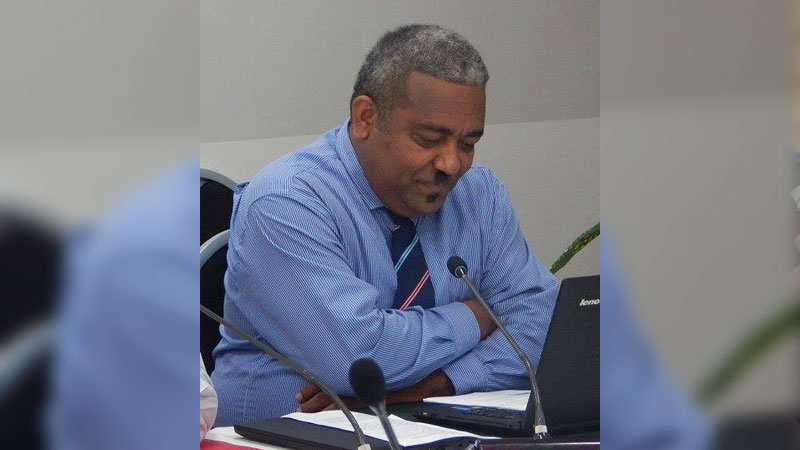
Some residents of Levuka say the powers given to police officers in the Draft Police Bill are too much, however, the Senior Defence Officer Joji Washington says there is a lot of misconception about the powers given to the officers.
While responding to questions from the people at the Lomaiviti Provincial Council Hall, Washington says the new powers are only applicable in certain circumstances like terrorism, an offence against the state, and if there is a plot of a coup or civil unrest.
He says this does not apply to all general crimes where a police officer can just take your mobile phone and have access to it.
SODELPA MP Peceli Vosanibola then put to Washington if this can be made clear in the draft bill as it is not there in its current form.
Vosanibola says all these powers given to officers can become a big issue later on in terms of police brutality.
While responding to Vosanibola, Washington says if police use more force than required, then they can be dealt with under certain sections of the bill.
Meanwhile the current Draft Police Bill states that any police officer or any other authorized Police employee may seize, without warrant, any computer or any other form of electronic device which is found in any crime scene, in the possession of any person detained or arrested who is reasonably suspected of having committed an offence, anywhere or in anything in any public place.
However it does not state that the new powers are only applicable in certain circumstances like terrorism, an offence against the state, or if there is a plot of a coup or civil unrest.
Washington says if there is terrorist planning in Fiji and if there is a suspicion that a person is a part of that group then police can come in without a warrant, search gadgets like computers and laptops.
He says they have looked at the laws in the UK, US and Singapore and have inculcated its best practices in this draft bill.
Washington says the seizure of electronic gadgets under this draft bill is related to the Cyber Crime Act.
He says this will help them in carrying out their investigations effectively.
A resident also asked who will ensure that police follow what is in the draft bill as there have been reports of severe police assaults and other cases.
Washington says there is an Internal Affairs Unit within the Fiji Police Force that people can go to lodge complaints against such actions.
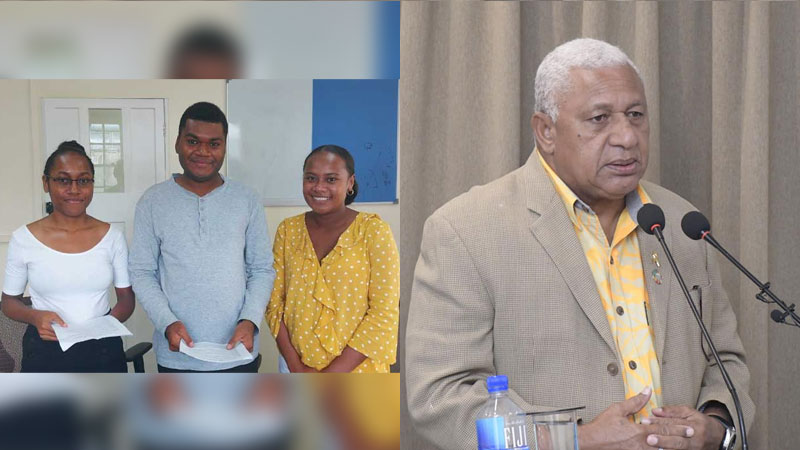
The Youth for Integrity Network has welcomed Prime Minister Voreqe Bainimarama’s comments that the Draft Police Bill will not go in its current form to Parliament.
Bainimarama says he has noted concerns from the public and he will be making his views known on the matter when he meets the senior Police Officers.
When contacted by Fijivillage, Police say they will not make any comments.
Youth for Integrity Fiji says they appreciate the Fijian Government being sincere in its intention but the Draft Police Bill is presented during an extremely challenging period when the COVID 19 pandemic has disrupted our lives.
It says the draft bill should be delayed in its submission to Parliament until 2022 when the situation in the country has normalised as Fijians seem to be divided during this pandemic period.
In some of their recommendations on the amendment of few sections of the Draft Police Bill, they have proposed the provision of youth engagement and reassurance under the Functions of the Force.
It says a yearly round table conference should be held for youth leaders, the Police Commissioner and senior officers to problem-solve ways of strengthening law and order in Fiji.
The youth group also recommends that the powers of the Police Commissioner are directed by a duly constituted body made up of a representative of the Government, a civil society representative and a representative of the Opposition.
This is because they feel there is always the possibility of a renegade Police Commissioner abusing his powers on his own will or through influence or direction from extra-legal sources.
It further recommends that subject to the presentation of a warrant, any police officer or authorised police employee may access and designate any cyberspace as a crime scene, whether used for private or public purposes, where such police officer has reasonable ground to believe that a crime has been committed.
Youth for Integrity Fiji adds that registered media personnel should be exempted from restriction on information and there should be a distinction in the Restriction on Information section between registered media groups and social media that aims to sensationalise crime scene issues.
While many people accept the Police Act needs to be modernised, they are raising concerns about some sections of the Draft Police Bill after it was made public.
The draft bill is proposing that a police officer or special constable will be able to search a crime scene and seize potential evidence without a warrant.
The proposed law says a police officer or special constable may search any person, animal, vehicle or vessel at the crime scene or in the immediate vicinity of such crime scene.
Any person who fails to comply with this could be sent to prison for up to five years.
It also says that it will be lawful for any police officer or special constable to use reasonable force on any person who fails to comply.
The Draft Police Bill also says any police officer or any other authorized police employee may seize, without warrant, any electronic storage device which is found in any crime scene or in the possession of any person detained or arrested or anywhere in any public place.
There are also provisions in the Draft Police Bill to deploy police as soldiers subjected to military law during emergency situations.
The Draft Bill empowers the President to employ the Police Force and subject it to military law during an emergency or war.
It defines emergency situation as natural disasters, man-made disasters and any other situation which give rise to or may give rise to casualties, and or damage or loss of property, infrastructure, essential services or affects the means of livelihood or health or the general wellbeing of the public on a scale which is beyond the normal capacity of the affected communities to cope with unaided.
Concerns have also been raised on provisions like the imposition of upto life imprisonment or $1 million fine on people who refuse to provide passwords of their electronic devices, police being allowed to eavesdrop and record conversations and recruitment of informers through lure of payment.
Face to face consultations on the Draft Police Bill will be held at the Serua Provincial Council Hall in Navua from 9am to 1pm tomorrow.
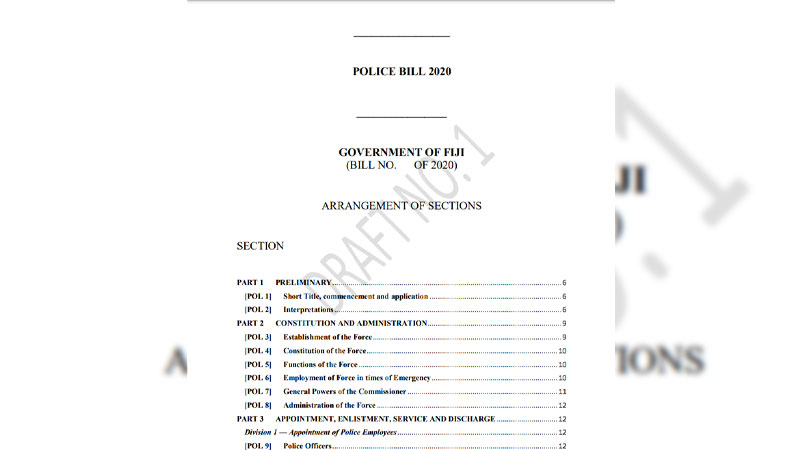
Concerns have been raised by some of the residents in Levuka on the short time span and the lack of knowledge that they have on the Draft Police Bill before consultations started.
There were also concerns raised on copies of the draft bill not being readily available and that they are only available online where not everyone has access to the draft proposed law.
Another concerned resident asked why they did not have copies of the draft bill written in the Itaukei language when the officials will be conducting consultations in the rural areas.
While responding to queries from the Levuka people, Senior Defence Officer Joji Washington says they are working with the Itaukei Affairs Ministry to try and get the draft bill translated and get the Roko from different districts to get copies of it.
Washington says this way the people from the other districts can go at any time to the Ministry for Defence and make their submissions after reading the itaukei version.
He says they advertised the consultation dates and time in the newspapers and the talkback shows that they have been having for people to be aware of the dates.
While many people accept the Police Act needs to be modernised, they are raising concerns about some sections of the Draft Police Bill after it was made public.
The draft bill is proposing that a police officer or special constable will be able to search a crime scene and seize potential evidence without a warrant.
The proposed law says a police officer or special constable may search any person, animal, vehicle or vessel at the crime scene or in the immediate vicinity of such crime scene.
Any person who fails to comply with this could be sent to prison for up to five years.
It also says that it will be lawful for any police officer or special constable to use reasonable force on any person who fails to comply.
The Draft Police Bill also says any police officer or any other authorized police employee may seize, without warrant, any electronic storage device which is found in any crime scene or in the possession of any person detained or arrested or anywhere in any public place.
There are also provisions in the Draft Police Bill to deploy police as soldiers subjected to military law during emergency situations.
The Draft Bill empowers the President to employ the Police Force and subject it to military law during an emergency or war.
It defines emergency situation as natural disasters, man-made disasters and any other situation which give rise to or may give rise to casualties, and or damage or loss of property, infrastructure, essential services or affects the means of livelihood or health or the general wellbeing of the public on a scale which is beyond the normal capacity of the affected communities to cope with unaided.
Concerns have also been raised on provisions like the imposition of upto life imprisonment or $1 million fine on people who refuse to provide passwords of their electronic devices, police being allowed to eavesdrop and record conversations and recruitment of informers through lure of payment.
Face to face consultations on the Draft Police Bill will be held at the Serua Provincial Council Hall in Navua from 9am to 1pm tomorrow.
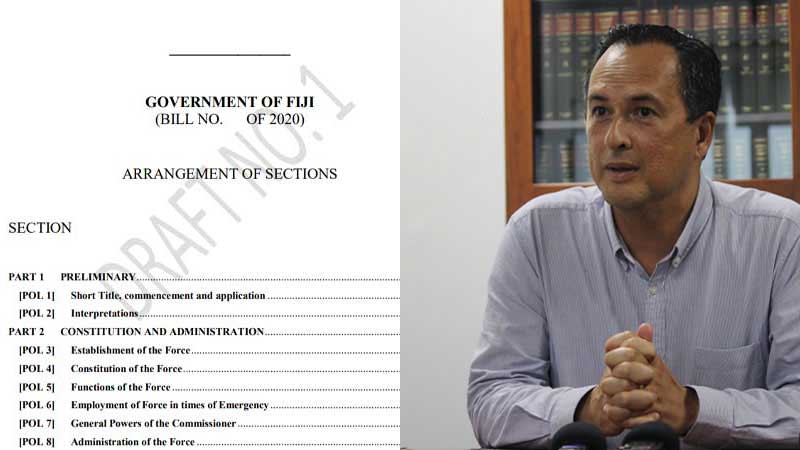
The Fiji Law Society says the wide scope of the proposed police powers in the Draft Police Bill are inconsistent with values of respect for human rights, freedom and the rule of law.
Fiji Law Society President Wylie Clarke says it is understandable that Police powers need to be modernised to meet today’s circumstances, particularly having regard to technology that did not exist in 1965 when the current Police Act was enacted.
Clarke says however, the increased Police powers go well beyond this and potentially affect fundamental human rights set out in the Constitution and international conventions which Fiji has signed.
He says the proposed bill may also conflict with provisions of the Criminal Procedure Act and common law rights to personal and real property and privacy.
Clarke adds the Fiji Law Society has also previously expressed its concern about the increasingly frequent allegations of police brutality and take note of other allegations regarding the unreasonable detention of persons for up to forty-eight hours.
He says against this backdrop, the immunity afforded to police officers under the draft bill’s proposed terms must therefore also be carefully scrutinised.
Clarke says the Fiji Law Society commends the Ministry of Defence and National Security and Policing for commencing a public consultation process.
He adds however, this consultation process must not stop here.
The Fiji Law Society President says they do not understand why face to face consultations are currently restricted to the maritime islands and rural areas and that people living in urban areas are to provide their submissions online.
Clarke says they do not believe this is enough.
He stresses that a proper consultation process should enable all citizens to have an opportunity to make their submissions in person.
Clarke adds a proper public consultation process must also start with information, written in a simple and accessible way, that enables all members of the public, not just lawyers, to understand what is set out in the draft bill.
He stresses the Draft Police Bill will impact everyone in Fiji so it is critical that the public understands exactly what the draft bill proposes.
Clarke further says public consultation must also continue when the proposed bill is introduced in Parliament.
He says the Fiji Law Society hopes that the Draft Police Bill will be referred to a Parliamentary Standing Committee for review and to receive submissions from the public.
Clarke also says this process will help ensure that Parliament clearly understands the impact, and the public’s views, of the draft bill.
He says the Society will be making submissions and will comment further on the Draft Police Bill in coming weeks.
We have reached out to the Minister for Defence, National Security and Policing Inia Seruiratu for a response to the statement by the Fiji Law Society.
He is yet to respond.
Eleven locations have been identified for the first round of face to face public consultations on the Draft Police Bill.
It will start today at the Lomaiviti Provincial Council Hall in Levuka from 12pm to 4pm.
The first round of face to face public consultations will run from today till the 31st of this month. Online submissions will close on 3rd April.
You can make online submissions on www.defence.gov.fj
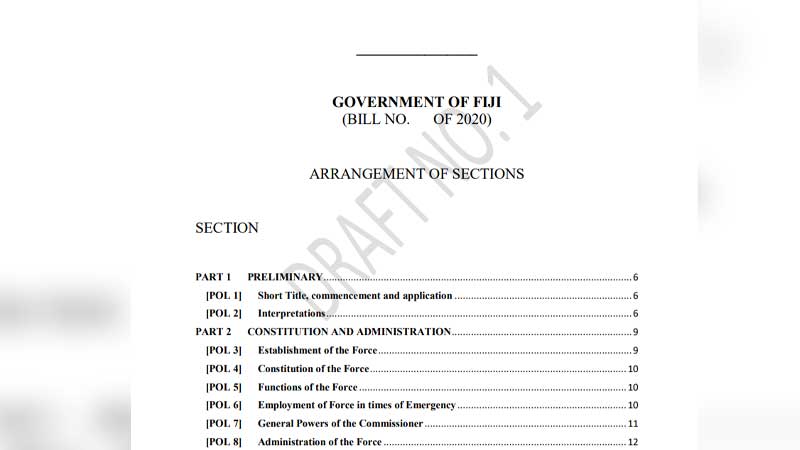
Eleven locations have been identified for the first round of face to face public consultations on the draft Police Bill.
It will start tomorrow at the Lomaiviti Provincial Council Hall in Levuka from 12pm to 4pm.
The first round of face to face public consultations will run from tomorrow till the 31st of this month.
Other sessions will be held at Serua Provincial Council Hall in Navua, Sabeto Village in Nadi, Keiyasi Village in Sigatoka, Nacula Village in Yasawa, Khatri Hall in Ba, Nadarivatu Village, Nalawa in Rakiraki and Vunimono Hall in Nausori.
The Ministry of Defence, National Security and Policing says anyone wishing to make submissions on the draft Police Bill can attend these sessions.
The Ministry has confirmed that only online submissions will be available for those living in urban areas.
They say they are only targeting areas where there is limited internet connectivity in the face to face public consultations.
Online submissions will close on 3rd April.
You can make online submissions on www.defence.gov.fj
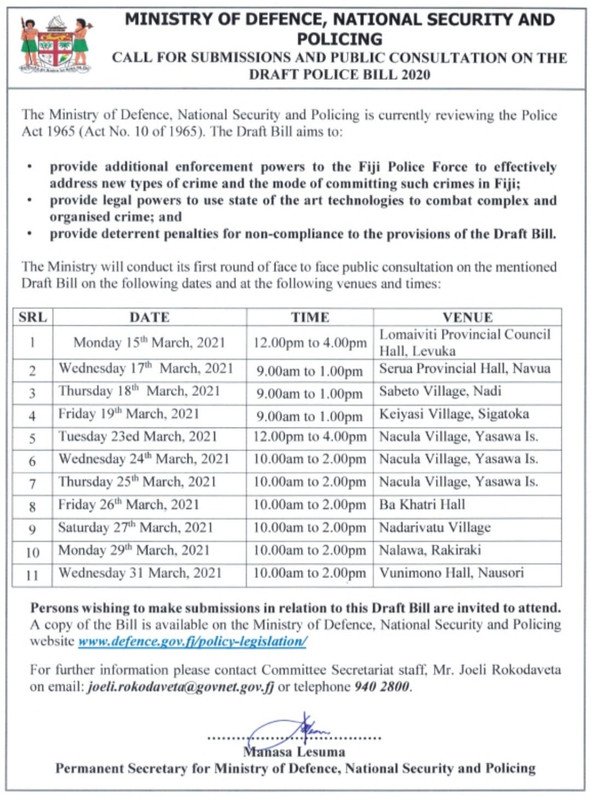

Youth for Integrity Fiji says they appreciate the Fijian Government being sincere in its intention but the Draft Police Bill is presented during an extremely challenging period when the COVID 19 pandemic has disrupted our lives.
It says the Draft Police Bill should be delayed in its submission to Parliament until 2022 when the situation in Fiji has normalised as Fijians seem to be divided during this pandemic period.
In some of their recommendations on the amendment of few sections of the Draft Police Bill, they have proposed the provision of youth engagement and reassurance under the Functions of the Force.
It says a yearly round table conference should be held for youth leaders, the Police Commissioner and Senior Officers to problem-solve ways of strengthening law and order in Fiji.
The youth group also recommends that the powers of the Police Commissioner are directed by a duly constituted body made of a representative of the Government, a Civil Society rep and a representative of the Opposition.
This is because they feel there is always the possibility of a renegade Police Commissioner abusing his powers on his own will or through influence or direction from extra-legal sources.
It further recommends that subject to the presentation of a warrant, any police officer or authorised police employee may access and designate any cyberspace as a crime scene, whether used for private or public purposes, where such police officer has reasonable ground to believe that a crime has been committed.
Youth for Integrity Fiji adds all training programmes of the Police Force should be vetted for quality control and relevance by the Fiji Higher Education Commission or a duly constituted Police Training Board.
It further says registered media personnel should be exempted from restriction on information and there should be a distinction in the Restriction on Information section between registered media groups and social media that aims to sensationalise crime scene issues.
The youth group says they wonder if it is possible for political leaders from both the Government and the Opposition to meet over coffee or a bowl of kava to discuss and act on national issues.
It also says majority of the Police Force members carry out their duties with dedication and integrity but it is only a minority of the rogue elements in the force that give it a negative image.
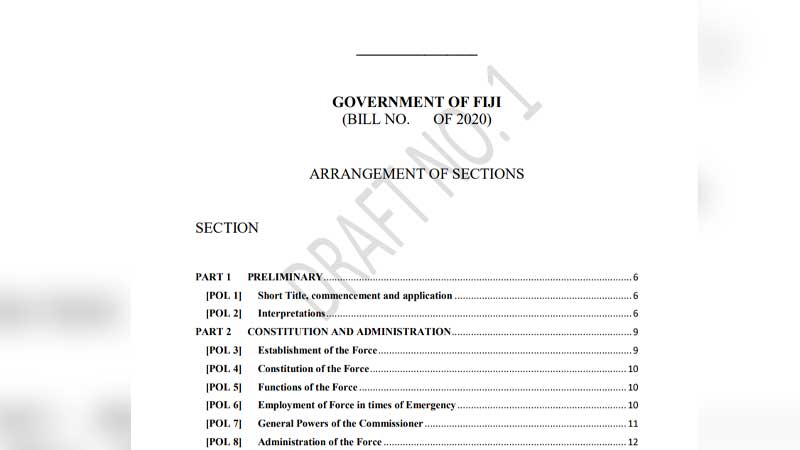
It has now been confirmed that only rural and maritime areas like Rotuma, Yasawa, Kadavu, Ovalau, Taveuni and the Lau group will have face to face consultations on the first draft of the Police Bill.
Face to face consultations will start next Monday.
The Ministry of Defence, National Security and Policing has confirmed that only online submissions will be available for those living in urban areas.
Joeli Rokodaveta who is an executive officer and member of the draft Police Bill review team says they are only targeting areas where there is limited internet connectivity.
He says they have identified 21 areas for face to face consultations.
Rokodaveta says online submissions will close on 3rd April.
You can make online submissions on www.defence.gov.fj
He says the face to face consultations will run for 8 weeks.
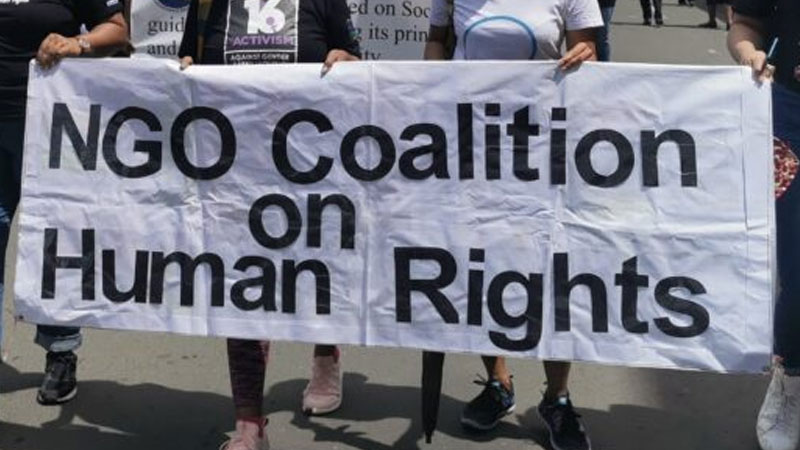
The NGO Coalition on Human Rights says this is not the time to rush and pass a Draft Police Bill that gives the Police more powers over individuals when cases of police brutality have yet to be investigated.
The Members of the NGO Coalition include the Fiji Women's Crisis Centre, Fiji Women's Rights Movement, Citizen's Constitutional Forum, femLINKpacific, Social Empowerment and Education Program (SEEP), DIVA for Equality Fiji while Pacific Network on Globalisation and Haus of Khameleon are observers.
A statement released by the coalition says they have repeatedly called for urgent reviews of the investigation processes to be transparent and timely so that justice is upheld.
They ask where in the proposed bill are their concerns addressed and articulated.
The NGO Coalition also says they strongly condemn the blatant disregard of due process by the Government and the audacity to attempt, by assigning the Ministry of Defence and National Security to oversee the Draft Police Bill 2020.
The coalition says any proposed legislation must pass through the parliamentary standing committee.
It says it is not the mandate of the Ministry of Defence and National Security to manage the consultation process nor make amendments to a bill.
The NGOs say their handling of this particular draft bill, a bill which is of utmost importance to the freedom and safety of all Fijians, raises serious ethical concerns.
The coalition says a working democracy must protect and ensure good governance, accountability, transparency and due process at all levels, and even more so when passing laws that will infringe on the fundamental rights and freedoms of every Fijian in this country if passed into law by Parliament.
They say Fiji is facing serious cases of human rights violations where the Police have used excessive force during arrests on individuals.
The coalition says according to data from the Office of the Director of Public Prosecutions, from May 2015 to April 2020, there were 400 police officers who were charged with serious violence offences - this included 16 charges of Rape, 2 charges of Murder and 9 charges of Manslaughter.
They say as a coalition, they have provided input on previous consultation processes on various bills however, when a bill is passed by Parliament, their input into these consultation processes are not included in the new law.
They further say they wonder whether the input of every Fijian to this Draft Police Bill would even matter or make a difference at all.
The coalition says if the government is serious about its international human rights commitments and priorities, then it should not rush this process and genuinely ensure the meaningful engagement of all Fijians and human rights organisations where their concerns are addressed clearly and articulated in the Draft Police Bill 2020.
Minister for Policing Inia Seruiratu has said that the public consultation phase is extremely important because they need to adequately capture and take into consideration the interests, concerns and voices of every Fijian.
He said the review of the Fiji Police Force’s primary legislation is part of government’s priorities to be tabled in parliament this year.
Seruiratu said initially, the review process of the Police Act 1965 began in 2019 with an in-house and inter-agency consultation programme where submissions were received from all the five divisional police commanders, directors and inter-agency partners.
Online submissions on the proposed law started on the 26th of last month and will continue for 30 days.
Seruiratu says he will not comment on the draft bill at this stage.
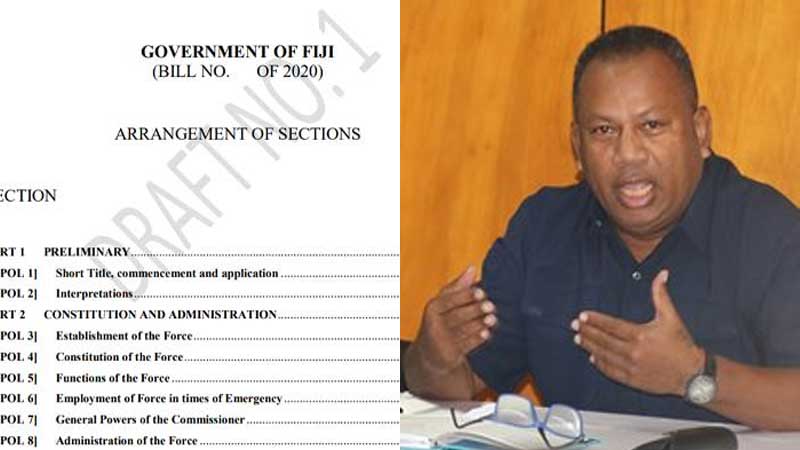
Police are not commenting on why it has become so necessary to search a crime scene and seize potential evidence without a warrant as stated in the draft Police Bill.
The draft bill is proposing that a police officer or special constable will be able to search a crime scene and seize potential evidence without a warrant.
We have also asked Police if they recommended this during the review process.
They are yet to officially respond.
Fijivillage also asked Police why it has become so necessary to make it lawful for a police officer to use reasonable force on any person who fails to comply.
The draft Police Bill says any police officer or any other authorized police employee may seize, without a warrant, any electronic storage device which is found in any crime scene or in the possession of any person detained or arrested in any public place.
We have also asked Police to explain why this has become so necessary.
The Ministry of Policing and Defence says the draft Police Bill is a preliminary draft of submissions received by the Fiji Police Force during three days of consultations with its internal and key external stakeholders in Suva in May 2019.
Minister for Policing Inia Seruiratu says he will not comment on the draft bill at this stage.
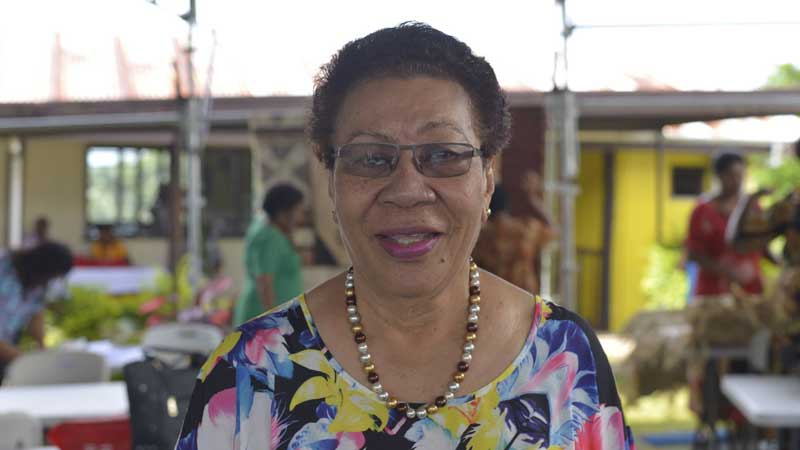
Soqosoqo Vakamarama iTaukei is calling for immediate consultations from owners of the Draft Police Bill.
Representative Adi Finau Tabakaucoro says at the moment their understanding is that this draft bill is supposed to help facilitate the work of the police officers.
She says they are not aware of everything that is in the proposed draft law but what sticks out to them is Police Officers not allowed to be part of a union and they also cannot form a union.
Adi Finau believes police officers have the right to be part of a union.
Part 7 of the draft bill states that it shall not be lawful for a Police employee to become or to be, a member of any union or association having for its objects, or one of its objects, to control or influence the pay or conditions of service of the Force.
It also states that any Police employee contravening any of this shall be guilty of an offence and liable to a fine not exceeding $1,000.
Adi Finau says they will need to study the draft bill in order to make any other comments about it.
Online submissions on the proposed law started on the 26th of last month and will continue for 30 days.
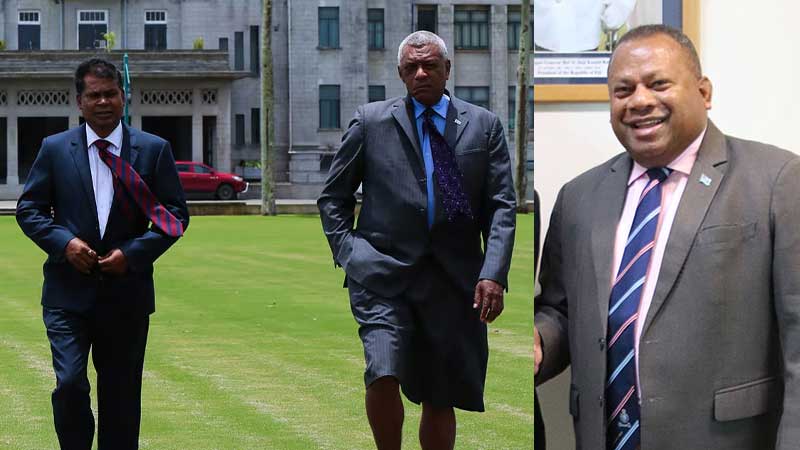
Face to face public consultations for the draft Police Bill are expected to start on the 15th of this month however some groups like the National Federation Party say the bill should not reach parliament.
A review team will visit 21 centres throughout Fiji.
They will also go as far as Rotuma, Yasawa, Kadavu, Ovalau, Taveuni and the Lau group.
The public consultation is funded by the United Nations Development Programme and the New Zealand Foreign Affairs, Trade and Aid programme.
However National Federation Party President, Pio Tikoduadua says the draft bill must not be allowed to reach the floor of parliament.
Tikoduadua says it is inconceivable that government could use provisions in the draft Police Bill to impose martial law even during emergency situations and deploy police as soldiers subjected to military law.
He pointed out the draft bill empowers the President to employ the Police Force and subject it to military law during an emergency or war.
Tikoduadua says the draft bill defines emergency situation as natural disasters, man-made disasters and any other situation which give rise to or may give rise to casualties, and or damage or loss of property, infrastructure, essential services or affects the means of livelihood or health or the general wellbeing of the public on a scale which is beyond the normal capacity of the affected communities to cope with unaided.
He says right now government’s prime concern and top-most priority should be to ease the pain and suffering of its citizens by improving health facilities, implementing measures to reduce cost of living and arrest the growing problem of worsening infrastructure.
NFP Leader, Professor Biman Prasad says provisions of the draft bill is at the height of totalitarianism, absolute dictatorship and complete erosion of fundamental rights and freedoms of citizens.
He has questioned why people are being asked to comment on a draft legislation.
Prasad claims that the government will bring the bill to Parliament under Standing Order 51 to avoid public debate and scrutiny.
He claims the provisions of this bill will clearly be used to persecute opposition political leaders and civil society.
Prasad says provisions like the imposition of life imprisonment or $1 million fine on people who refuse to provide passwords of their electronic devices, police being allowed to eavesdrop and record conversations and recruitment of informers through lure of payment have no place in Fiji.
The NFP Leader also questions why is the government treating its citizens like terrorists and hardened criminals.
Minister for Policing Inia Seruiratu has said that the public consultation phase is extremely important because they need to adequately capture and take into consideration the interests, concerns and voices of every Fijian.
He said the review of the Fiji Police Force’s primary legislation is part of government’s priorities to be tabled in parliament this year.
Seruiratu said initially, the review process of the Police Act 1965 began in 2019 with an in-house and inter-agency consultation programme where submissions were received from all the five divisional police commanders, directors and inter-agency partners.
Online submissions on the proposed law started on the 26th of last month and will continue for 30 days.
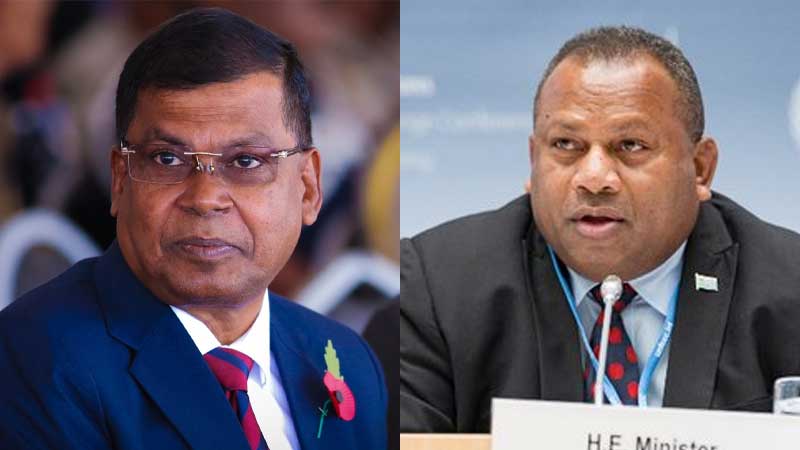
National Federation Party Leader Professor Biman Prasad says draconian provisions of the draft Police Bill if enacted by Parliament will turn Fiji into a Police State while the Minister for Policing, Inia Seruiratu has stressed that the draft bill aims to provide additional enforcement powers for police to address new forms of crime.
Prasad says provisions of the draft bill is at the height of totalitarianism, absolute dictatorship and complete erosion of fundamental rights and freedoms of citizens.
The NFP Leader has questioned why people are being asked to comment on a draft legislation.
Prasad claims that the government will bring the bill to Parliament under Standing Order 51 to avoid public debate and scrutiny.
He claims the government has found an avenue to trample upon the rights and dignity of people through the new draft Police Bill claiming its review is long overdue.
Prasad claims provisions of this bill will clearly be used to persecute opposition political leaders and civil society.
He says provisions like the imposition of life imprisonment or $1 million fine on people who refuse to provide passwords of their electronic devices, police being allowed to eavesdrop and record conversations and recruitment of informers through lure of payment have no place in Fiji. The NFP Leader questions why is the government treating its citizens like terrorists and hardened criminals.
He says it is inconceivable that such a bill has even been drafted.
Prasad adds this draft bill should not reach the floor of Parliament because it will entrench dictatorship, thuggery and persecution.
Minister for Defence and National Security, Inia Seruiratu is yet to make further comments.
Seruiratu has already stated that the current Police Act is archaic and needs to be updated.
He said the bill aims to provide additional enforcement powers for police to address new forms of crime, provide legal powers to use modern technological aids to combat complex and organized crimes and institute deterrent penalties.
Seruiratu says while policing functions have remained resolute and constant over the years, the criminal landscape has changed drastically and police are now tasked with enforcing laws that are aligned to new and emerging challenges.
Online submissions on the proposed law started on the 26th of last month and will continue for 30 days.
The Ministry of Defence, National Security and Policing says the face to face consultation will start at a later date.
They will provide the dates, times and venues when it is confirmed.
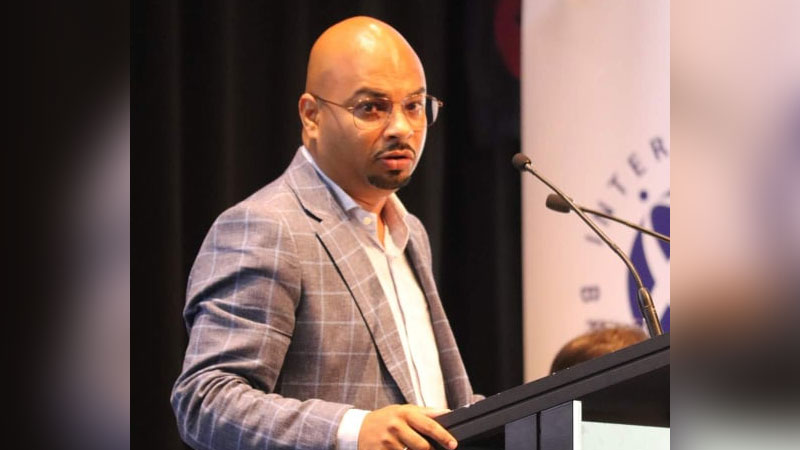
Director of Human Rights and Anti-Discrimination Commission, Ashwin Raj says the Commission will be making its submission on the proposed Police Bill once the bill has been tabled in Parliament.
Raj says the Commission will in its substantive submission call for alignment of the bill with the state's human rights obligation under the domestic procedures and international conventions and treaties that Fiji has ratified.
He says the Commission wrote to Parliament requesting for a date to make a submission on the proposed bill.
Raj says they were advised that the Police Bill is yet to be tabled in the House.
He says any commentary on the draft bill before it is tabled in the Parliament is premature.
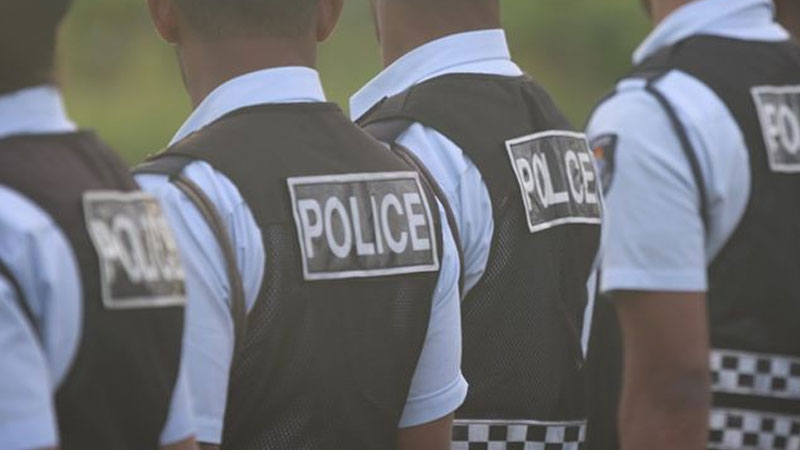
A person could face a $10,000 fine or 5 years in prison if they transform their vehicle to look a Police car.
This is according to the Draft Police Bill 2020.
The proposed law states a company could face a $100,000 fine if they do the same.
According to the Draft Police Bill, a person could spend 10 years in prison or face a $50,000 fine if they use the vehicle that has been made out to look like a Police car to commit a crime.
If it is a company that uses the vehicle for a crime, they could be fined $500,000.
The Ministry of Defence, National Security and Policing says the Draft Police Bill aims to provide additional enforcement powers to the Fiji Police Force to effectively address new types of crime and the mode of committing such crimes in Fiji.
It also says that the draft bill aims to provide legal powers to use state of the art technologies to combat complex and organised crime.
Online submissions on the proposed law started on the 26th of last month and will continue for 30 days.
The Ministry of Defence, National Security and Policing says the face to face consultation will start at a later date.
They will provide the dates, times and venues when it is confirmed.
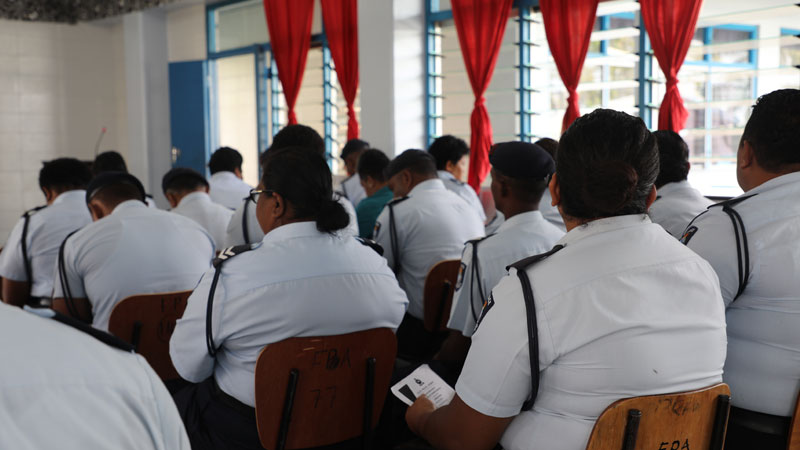
A draft Police Bill is proposing that a police officer or special constable will be able to search a crime scene and seize potential evidence without a warrant.
The proposed law says a police officer or special constable may search any person, animal, vehicle or vessel at the crime scene or in the immediate vicinity of such crime scene.
Any person who fails to comply with this could be sent to prison for up to five years.
It also says that it will be lawful for any police officer or special constable to use reasonable force on any person who fails to comply.
The draft Police Bill also says any police officer or any other authorized police employee may seize, without warrant, any electronic storage device which is found in any crime scene or in the possession of any person detained or arrested or anywhere in any public place.
Stay tuned for the latest news on our radio stations

